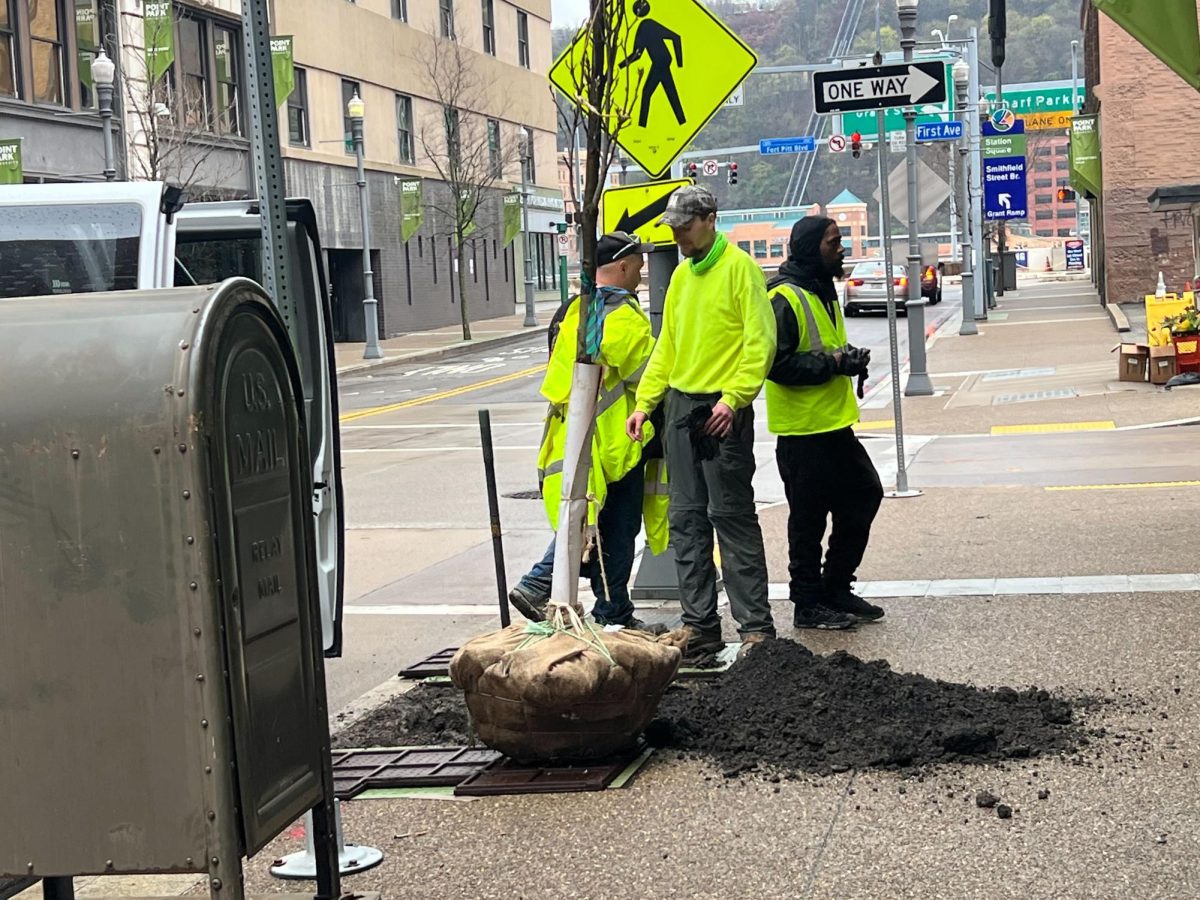At the age of 19, Kishor Pradhan was forced to leave his home country, Bhutan, and leave behind his parents. From there, he traveled to India and joined the People’s Forum for Human Rights to help free friends and fellow Bhutanese who were arrested by the government in an ongoing act of discrimination. When India grew tired of protecting the Bhutanese, Pradhan had no option but to seek refuge elsewhere. He then joined the thousands of other Bhutanese refugees living in a camp in Nepal, where they were entirely isolated from life outside the walls of the flimsy bamboo shelters. After more than 10 years and 16 visits to the international office at Point Park University, Pradhan is now a student in the Master of Business Administration (MBA) program. When he finishes classes and leaves work from his job at Highmark, he makes time to help other Bhutanese refugees become assimilated into American culture as they make the transition from a refugee camp in Nepal to city life in Pittsburgh. “Everything is new to them, from the buildings to the streets, because they have been staying in the refugee camp for 17 years, where you are not allowed to go out or intermingle with others,” Pradhan said. “There is no integration with other people. So coming from that type of life to this – having an apartment, living in a building and walking the streets freely – pretty much everyone gets a shock.”In order to address the issue of illegal Nepalese immigrants in Bhutan, the Bhutanese monarchy passed the Bhutan Citizenship Act in 1985. This added many requirements for becoming a citizen, such as being fluent in Dzongkha, the language of the ruling class. As a result, many of the Lhotsampas, an ethnic group of Nepalese descent living in Southern Bhutan, lost citizenship – even those whose families had been living in Bhutan for generations. In an effort to preserve their indigenous ties and national identity, the ruling class began to force the Lhotsampas to leave the country in the 1990s.”We didn’t have any place to go. We were not allowed to stay in India, which is the neighboring country of Bhutan,” Pradhan said. “We were taken and forcefully dumped in Nepal.”Upendra Dahal, 38, who was recently accepted into Point Park’s MBA program, was forced to leave Bhutan at the age of 19. He recalls the unfairness of the government’s laws.”They wanted to do away with the cultural differences, specifically belonging to the Hindu communities [of the Lhotsampas], and they started with the language first,” said Dahal, who remembers learning the Nepalese language in school before it was eliminated from the curriculum in 1988. “They want to have one kind of culture, one kind of religion, and they expect people to speak the same language.” Initially, all the refugees from Bhutan lived in one camp in Nepal, but, due to unsanitary conditions, seven smaller camps were created to house refugees.”I still remember, there were 14 dead bodies in one day – from illnesses, because the living condition was not good,” Pradhan said. “So they transferred the people into different areas.”The seven refugee camps in Nepal are comprised of more than 16,000 shelters, made of bamboo and plastic roofs that hardly shield from rain. The huts do not have electricity or indoor plumbing, to which Pradhan added, “Even the animals in the United States lived in better conditions than those people.”Although the living conditions were unsatisfactory, Dahal said that at least the refugee camp was a safe haven.”The political atmosphere of the camp was very peaceful. You cannot compare with the camps in Afghanistan or in Pakistan or in African countries,” Dahal said. “They are very much disturbing – a lot of violence, a lot of killing. But we didn’t experience that … our camps are totally, one hundred percent peaceful.” Kunti Gurung, began living in a refugee camp in Nepal at the age of six, and lived there for 18 years. Gurung, now 26, lives with her younger sister in Prospect Park in an apartment that was acquired with the help of Jewish Family and Children’s Services of Pittsburgh (JF&CS). This nonprofit organization offers counseling and aid to families in need, as well as resettlement services to refugees. Through JF&CS services, refugees receive a furnished apartment in Pittsburgh, with several months paid rent. The program also helps refugees to find employment and become comfortable with America’s culture.”We are a liaison at the beginning with the goal that they will be able to manage within six months to a year. We do this without regard to religion or race or language,” said Leslie Aizenman, refugee services director of JF&CS. “[Helping others] is what this country is built on … and it’s a saving lives program. We were all once immigrants, and to help the stranger is [important] in every faith.” Gurung said she was lucky to receive an opportunity to come to the United States – a chance that most people in the camp do not receive.”They never get such an opportunity to lead a better life. Because of the situation in the camp, if you see them, you feel pity on them. Even I feel like that,” Gurung said. “But as I’ve grown up in the camp itself, I can manage everything, but if some other people go and visit the camp, they feel pity on them because everything is in poor condition.” Pradhan received his chance to come to the United States in 2005, where he initially lived in New York. Although Pradhan was eager to continue his education, he could not do so immediately because the university he attended in India ignored his requests to send his transcript to Point Park. After countless visits to the Office of International Student Services and Enrollment and dozens of calls to his former university, he finally received his transcript and is now a first-semester student at Point Park.
Breaking News











